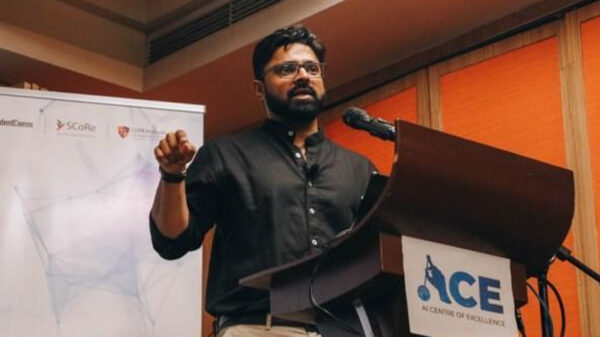Health measures to curb the effects of the COVID-19 have heavily affected business continuity for many industries, most especially manufacturing companies that rely on physical work on the factory floor to keep afloat.
“Social distancing is key in a factory because it’s very common for people to get together,” said Carlos Rojas, Manufacturing Industry Lead of Cisco Philippines. “Digital technologies that enable companies to keep their teams safe, productive and connected are vital. There are lots of ways to utilize technology, but those backbones and investments are key for companies to remain agile in the current situation.”
In their online webinar series titled “Manufacturing in the New Normal: Moving Beyond the Disruption”, Cisco Philippines gathered innovative leaders to provide solutions to complicated challenges in the manufacturing industry.
Another challenge felt not just by the industry but by the whole country in general is the lack of transportation services. For both Microchip Philippines, led by Country Manager Greg Fisher, and Allegro MicroSystems Philippines Inc., led by Asia IT Head Rhett Ramos, the inability of employees to reach their places of work due to restricted public transportation caused severe business disruptions. Nevertheless, Ramos noted that government measures to ease the disruption were a great help, especially with processing fees in the Bureau of Internal Revenue (BIR) and the Bureau of Customs (BOC).
As a top priority, however, health and safety measures in an otherwise highly physical workspace were the biggest challenge. But for businesses like Amkor Technology Philippines, Inc., the company’s ability to manage costs and immediate pandemic response allowed them to continue business as usual.
“We continue to execute our digital transformation initiatives and I am ensuring that our I.T. infrastructure is stable and capable to support any new requirements,” said Amkor Senior Director and Head of IT Jonathan Mondero.
Of the numerous adjustments done by the companies, system integration, automation of services and innovating supply chain management were the key transformations from the pandemic that the panelists agree will stay for good.
Rojas explained: “Making changes on a factory floor is very common but it requires a lot of time. In the pandemic, you need to be agile and you can’t make mistakes. If you don’t have people looking to implement new processes and technologies pre-emptively, such adjustments will take more time and will be more challenging to implement remotely. You have to look at ways to automate processes for greater connectivity from remote locations in a very sophisticated and speedy way, so that those changes that you make on production rounds are as easy as plugging a machine in and plugging it back.”
Amkor Technology Philippines turned to full digitalization at the onset of the pandemic. “We designed the whole integrated and secured architecture for a hybrid workspace, and we developed and deployed it in just two days. That’s the fastest that we were able to create a new system from scratch,” said Mondero.
For Asurion, these developments were a natural part of their business.
“Innovation is embedded in our culture. Even before the pandemic situation, our Fort Bonifacio site already supports remote working, and our management team had the necessary technology platform and framework available then,” said Asurion IT Director Lito Espacio. “Many platforms like digital currency and online transactions which have long been available are going to be appreciated further and will be part of the new norm. Opportunities like this will even continue to evolve in the supply chain businesses through the use of augmented or virtual reality. All the different branches in the supply chain including the end consumers will embrace this technology naturally.”
Despite the promising advances of key players in the industry, the experts acknowledged that not all companies and countries are capable of digital transformation right away. For Cisco’s Rojas, however, the world will be moving towards the same direction in the use of artificial intelligence (AI) in supply chain management and automation of network systems in connectivity as the future of remote management.
“Flexibility is the buzzword I see around the world. Creating spatial separation but still keeping people connected is possible with technology. Businesses should consider how they’ll manage their supply chain. Data is also very critical in the connection to the assets, to the machines, to the systems,” Rojas concluded.
















































































































